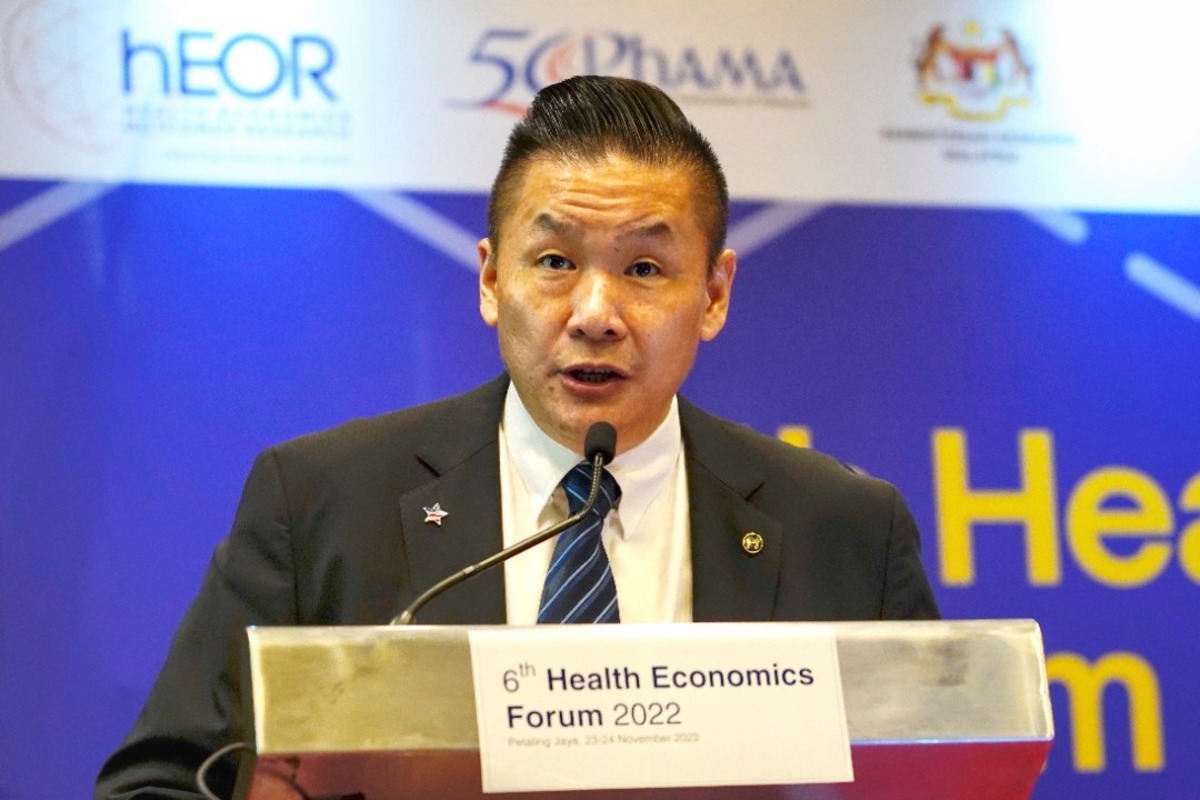PhAMA: Zero Layoffs In Pharmaceutical Industry In Malaysia During Pandemic
PETALING JAYA, Nov 25 – The pharmaceutical industry reported zero layoffs during the Covid-19 pandemic, according to the Pharmaceutical Association of Malaysia (PhAMA) that represents multinational drug makers.
PhAMA president Chin Keat Chyuan said the pharmaceutical industry instead created employment opportunities for more than 150,000 individuals nationwide in various capacities.
“At the height of the Covid-19 pandemic, the pharmaceutical industry probably is the only one experiencing zero lay off [sic,] compared to almost every other sector that was severely affected by the lockdown.
“I would like to pause and express our deepest appreciation and gratitude to all frontliners and fellow industry comrades who have worked doubly hard during the pandemic period to provide life-saving medicines to patients,” Chin said at the 6th Health Economics Forum 2022 here yesterday that was organised by the Health Economics Outcomes Research (hEOR), a unit of the Galen Centre for Health and Social Policy.
The forum was co-organised by PhAMA and the Ministry of Health (MOH).
Chin said the pandemic provided a “good wake up call” for industry players to address some gaps in Malaysia’s current health care system.
“One of the most glaring points was the need to consolidate resources and work together for a greater impact. PhAMA recognises this and places emphasis on developing strategic partnerships with other sectors, mainly government agencies, industry or trade-related associations, academia, and even patient groups.
“Why patient groups, some of you may be asking? Once again we revert back to our caretaker-caregiver core for a whole-of-society approach where we must stop working in silos and expand our outreach beyond our fraternity.
“Thanks to our global counterparts, the industry is backed by a wealth of science and evidence-based information which we can utilise to increase health literacy among patient groups to reduce the burden of disease and health care expansion,” Chin said.
Despite the opportunities presented, Chin admitted that logistical problems caused by global lockdowns, followed by the Russia-Ukraine war, had resulted in “tremendous challenges” for industry players.
CodeBlue in June reported major shortages of various prescription and over-the-counter (OTC) medications in Malaysia, including syrups for children and treatments for chronic conditions.
Medicine shortages have plagued Malaysia for years, but pharmacists relayed details about the situation hitting “worrying levels”, with longer shipment delays and frequent medicine borrowing from nearby health care facilities.
Former Health Minister Khairy Jamaluddin had even instructed the MOH to open up its federal medicine stockpile to lend medicines to private health care facilities.
Meanwhile, on health financing reform, Chin said the implementation of a social health insurance scheme is still “highly debatable”, with evidence showing that it may have negative repercussions in the long run.
Additionally, although PhAMA is “heartened” by commitments by major political coalitions — including Pakatan Harapan (PH) and Barisan Nasional (BN) that are now part of the unity government under Prime Minister Anwar Ibrahim — to increase the public health care budget to 5 per cent of Malaysia’s gross domestic product (GDP), Chin said it is unclear if plans in the previous Budget 2023, which was never passed by the 14th Parliament, will be implemented.
“Of course, as we all know [from] the heated topics due to the current political situation, the recently announced Budget 2023 obviously is no longer applicable for the time being.
“But nevertheless, we are heartened by the increase in the health care budget as this is evident that our call all these years for more resources in health care is heard,” Chin said.
Budget 2023, as proposed by the then-Ismail Sabri Yaakob government, had raised MOH’s budget by 11.5 per cent from RM32.41 billion to RM36.14 billion. Although this marked the biggest increase by percentage and absolute terms in the past five years, critics noted that the public health care budget, rationalised against the GDP, remained the same at 1.98 per cent as in 2022.
No Byline Policy
Editorial Guidelines
Corrections Policy
Source
